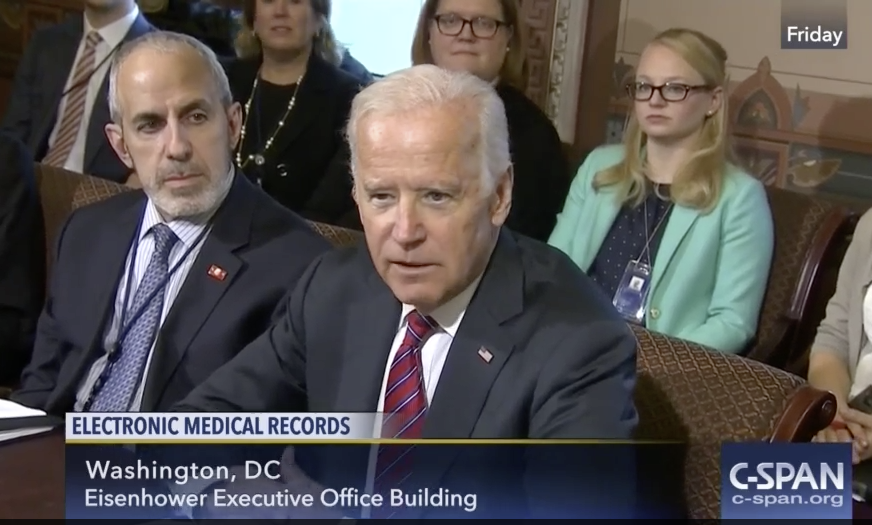proprietary EHRs
See the following -
Data Exchange Vendor Metriport Adopts Open Source
 Metriport is addressing a problem similar to other IT companies in health care—a service to ingest and clean patient data for tasks such as providing care summaries during a patient transition—but is doing so in a very unusual way: through an entirely open source service. Because the choice to go open source is so central to their business model, I will discuss the importance of free and open source software in health care, then explain Metriport's service.
Metriport is addressing a problem similar to other IT companies in health care—a service to ingest and clean patient data for tasks such as providing care summaries during a patient transition—but is doing so in a very unusual way: through an entirely open source service. Because the choice to go open source is so central to their business model, I will discuss the importance of free and open source software in health care, then explain Metriport's service.
- Login to post comments
Google Joins VistA Team Proposing Open Source EHR for the Department of Defense
 Google has thrown its hat into the EHR ring by joining the team led by PwC which is proposing that the Department of Defense (DoD) upgrade their current EHR to Defense Operational Readiness Health System (DORHS), a customized application built for the DoD and based on VistA, the open source EHR developed by the U.S. Department of Veterans Affairs (VA)...Google’s participation has enormous implications for both the DoD’s EHR and to the healthcare industry as a whole. By choosing the open source EHR team, Google...has sent a clear message to the world that VistA is the best option for the DoD.
Google has thrown its hat into the EHR ring by joining the team led by PwC which is proposing that the Department of Defense (DoD) upgrade their current EHR to Defense Operational Readiness Health System (DORHS), a customized application built for the DoD and based on VistA, the open source EHR developed by the U.S. Department of Veterans Affairs (VA)...Google’s participation has enormous implications for both the DoD’s EHR and to the healthcare industry as a whole. By choosing the open source EHR team, Google...has sent a clear message to the world that VistA is the best option for the DoD.
- Login to post comments
Is The 1.5+ Trillion Dollar HITECH Act a Failure?
 Hopefully, the public statements made by President Obama and Vice President Biden will lead to a public debate over the monumental problems that the HITECH Act and proprietary EHR vendors have caused the American people. While the press continues to report the figure of $35 billion as the cost of implementing EHRs, that figure does not tell the entire story. Perhaps the next step is to provide accountability and transparency. That would start with firm numbers regarding the real costs of EHR implementations forced on an unprepared healthcare system by the HITECH Act.
Hopefully, the public statements made by President Obama and Vice President Biden will lead to a public debate over the monumental problems that the HITECH Act and proprietary EHR vendors have caused the American people. While the press continues to report the figure of $35 billion as the cost of implementing EHRs, that figure does not tell the entire story. Perhaps the next step is to provide accountability and transparency. That would start with firm numbers regarding the real costs of EHR implementations forced on an unprepared healthcare system by the HITECH Act.
- The Future Is Open
- Login to post comments
Obama and Biden Blast EHR Vendors for Data Blocking
 As they are winding their terms in office, President Barack Obama and Vice President Joe Biden dropped a stink bomb on the health IT industry. Speaking at different events on Friday, January 9th, the President and Vice President both criticized proprietary electronic health record (EHR) vendors as the primary obstacle to the success of their administration’s health care strategy. This is the highest level acknowledgment so far of the serious impact that “lock-in” EHR software vendors are having on America’s medical infrastructure and the ability of physicians to provide medical care.
As they are winding their terms in office, President Barack Obama and Vice President Joe Biden dropped a stink bomb on the health IT industry. Speaking at different events on Friday, January 9th, the President and Vice President both criticized proprietary electronic health record (EHR) vendors as the primary obstacle to the success of their administration’s health care strategy. This is the highest level acknowledgment so far of the serious impact that “lock-in” EHR software vendors are having on America’s medical infrastructure and the ability of physicians to provide medical care.
Open Health Round-Up For 2014: Notable Articles, Reports, And Events
Even the hidebound field of health care can undergo a lot of change over the course of one year. Key health IT trends that I saw throughout 2014 are summarized in another article. Here I'll list some of the most notable articles and reports related to open source, standards, and transparency in health. Read More »
Open Source EHRs: Will They Support Clinical Data Needs of the Future? (Part 2 of 2)
The first part of this article provided a view of the current data needs in health care and asked whether open source electronic health records could solve those needs. I’ll pick up here with a look at how some open source products deal with the two main requirements I identified: interoperability and analytics. Interoperability, in health care as in other areas of software, is supported better by open source products than by proprietary ones. Read More »
The Value of EHR Interoperability that Money Can't Buy
 There seems to be something missing in our national debate about health care and the use of health information technologies (IT) in this marketplace. Do we want a more 'open' healthy society, or a more closed system? What role should markets play in public health and medical sociology? How do we decide which EHR solutions to acquire? Should we be looking more closely at open source alternatives versus proprietary programs. Should money, quality of care, or some other non-market values determine what's best for the patient? This cuts to the heart of the debate. Consider the hospital that chooses to not pay an expensive proprietary EHR vendor for the enhanced code required by a doctor in order to get the latest real time knowledge for treating a patient's disease.
There seems to be something missing in our national debate about health care and the use of health information technologies (IT) in this marketplace. Do we want a more 'open' healthy society, or a more closed system? What role should markets play in public health and medical sociology? How do we decide which EHR solutions to acquire? Should we be looking more closely at open source alternatives versus proprietary programs. Should money, quality of care, or some other non-market values determine what's best for the patient? This cuts to the heart of the debate. Consider the hospital that chooses to not pay an expensive proprietary EHR vendor for the enhanced code required by a doctor in order to get the latest real time knowledge for treating a patient's disease.
- Login to post comments